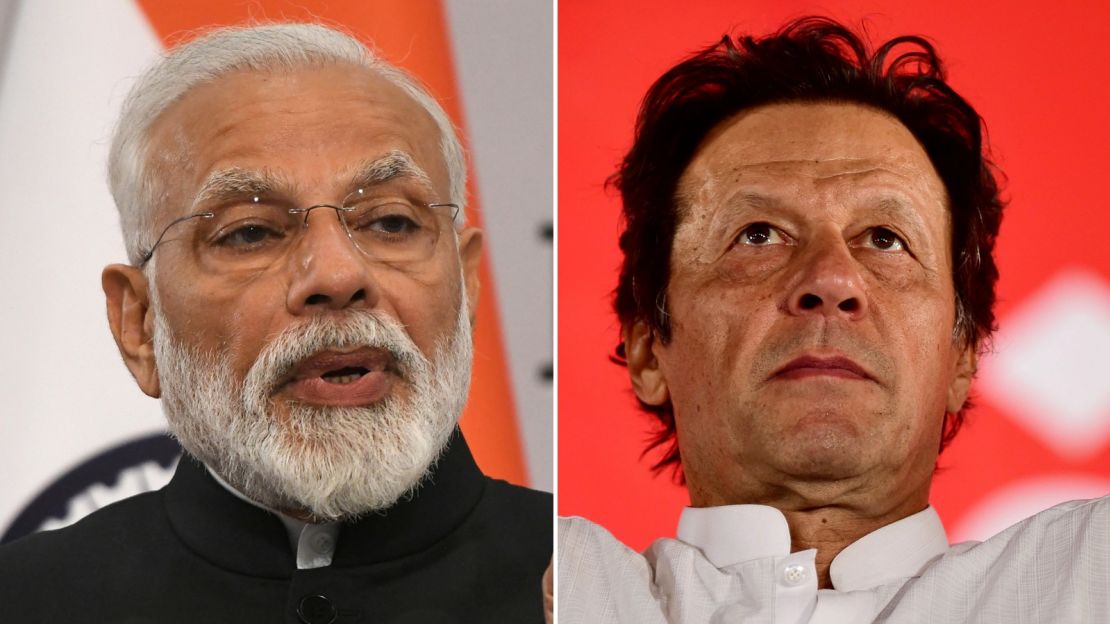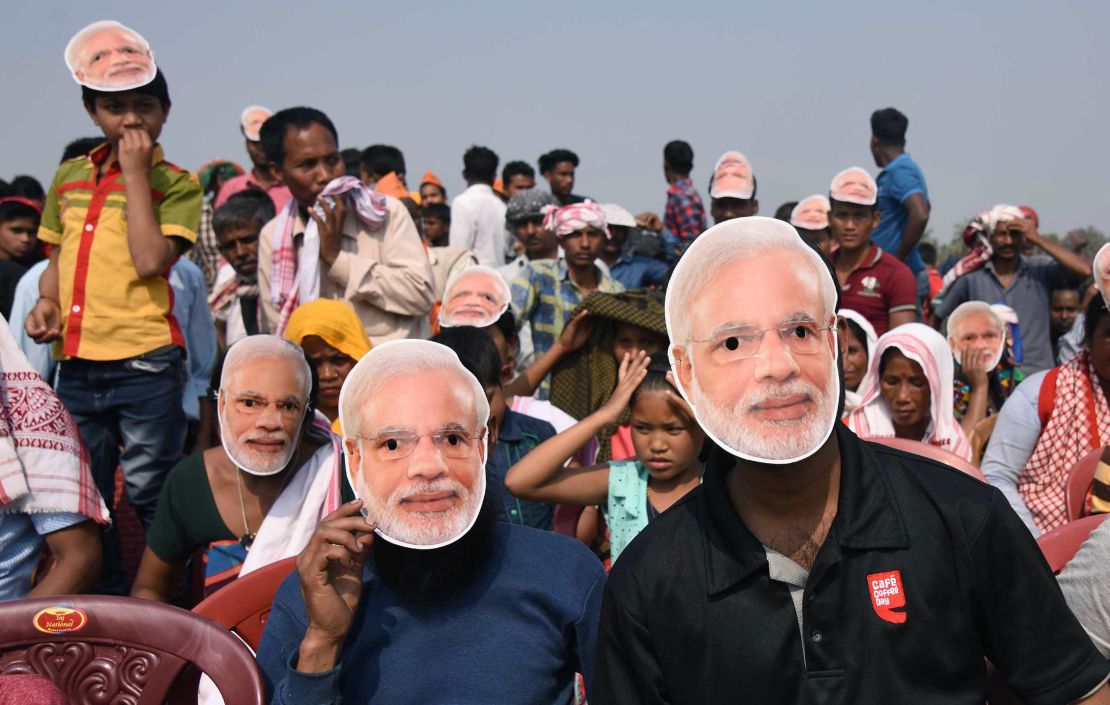As the world’s biggest democracy heads into general elections, all eyes are on Indian Prime Minister Narendra Modi, who is seeking a second term as the nation’s leader.
In the spotlight will be the recent escalation of tensions between New Delhi and Islamabad, with India launching airstrikes on what it says was a terrorist training camp across its de facto border with Pakistan. The government’s stance on its nuclear-armed neighbor comes at a critical time.
Modi built up formidable support ahead of his 2014 campaign, in which his Bharatiya Janata Party (BJP) claimed a record-breaking 282 seats in the national parliament.
Since joining the Hindu nationalist organization Rashtriya Swayamsevak Sangh (RSS) in 1972, and joining mainstream politics 15 years later as a member of the BJP, Modi has enjoyed a steady rise to power.
His critics say that the key to his success was the stoking of nationalist tendencies and fears, which garner support with the country’s Hindu majority. He also pushed a narrative of economic renewal, promising to generate jobs for India’s young people – something that helped him appeal to voters beyond the Hindu right wing.
“The Prime Minister has cultivated this image of being a strong and decisive leader…When you cultivate an image, you have to show you are doing something and feeding that narrative,” Salman Anees Soz, a member of India’s main opposition Congress party and author of the forthcoming book “The Great Disappointment: How Narendra Modi Squandered a Unique Opportunity to Transform the Indian Economy,” told CNN.
The 68-year-old’s popularity stems in large part from his reputation as a tough, “can-do” administrator, the man with a vision to elevate India as a powerful global economy.
The country’s annual rate of growth slumped in December and the weakest performance in more than a year.
India is still the world’s fastest growing major economy but analysts say that won’t matter to voters who feel they’re not reaping the benefits of India’s relatively strong growth – especially among the country’s youth.
Divisive politics
Modi’s rise to the top has not come without controversy.
A few months after he assumed the office of Chief Minister of Gujarat in late 2001, the state was wracked with violence in which more than 1,000 people – mostly Muslims – were killed.
Although his critics say Modi didn’t do enough to stop the violence, he has always denied any involvement and has never been charged with a crime. A supreme court ordered investigation in India cleared him of any blame or wrongdoing.
Now after five years at the helm, he is struggling to retain the support that saw his spectacular rise in 2014 – in contrast to his Pakistani counterpart. Imran Khan, the former cricket star, has been in power in neighboring Pakistan for little over half a year.
“They’re at very different points in their political trajectory,” says Madiha Afzal, a visiting fellow in the Foreign Policy and Global Economy and Development program at the Brookings Institution.
“At this point it does appear that Khan has a bit of a cooler head right now,” she said, referring to a speech Wednesday in which Khan appeared conciliatory and welcoming of talks, before acknowledging that the circumstances that brought about this latest cross-border crisis led to the deaths of 40 Indian paramilitary soldiers earlier this month in a suicide car bomb attack in Pulwama – part of India-controlled Kashmir.
“Of course it was Indian soldiers that died to start this. India had cause to be provoked.”

Reconciliation hopes fading?
Both leaders have stated that they want to improve relations – with India adding a caveat that bilateral talks cannot be held till cross-border terrorism stops. The relationship between the two nations has oscillated between tremulous attempts at reconciliation to fiery threats of retribution.
And as relations between the two neighbors deteriorate, many across the border are seeing Modi’s nationalist stance move the country further to the right, with the Hindu majority hardening in its attitudes towards Muslim Pakistan.
“Over the (years) since the Modi government has been in power, relations with Pakistan have eroded, not the top level relationships between the leaders, but what Pakistanis see as a transformation of India in terms of ordinary people,” says Rafia Zakaria, a columnist for Dawn newspaper in Pakistan.
“(We’ve seen) a large-scale transformation (of India) into a Hindu nation, not a secular nation,” she says, saying there are “constant, even daily skirmishes about petty things.”
“Modi is facing a tough re-election and is at a point where he can’t use the economy to unite the country,” says Afzal, the Brookings scholar.
“The specter of war is a good unifier,” said Afzal.
Jyoti Malhotra, editor of National and Strategic Affairs at Indian digital news platform The Print disagrees.
“I think India would react in a similar fashion irrespective of when this happened. It is coincidental that the elections are going to be held in a few weeks’ time. The impact of how Modi deals with Pakistan will have an effect on the elections but you can’t say that the Pulwama attack and consequently Modi’s decision will have an impact on the election, I think that’s quite farfetched,”

Strong leader
Modi and the BJP will be hoping for a majority when votes are counted on May 23.
In 2014, when Modi first became prime minister, he promised to be tough on India’s foes. The Kashmir crisis reinforced that narrative. And his supporters were quick to seize on it. Case in point, a tweet by Amit Shah, the BJP president, who said that Tuesday’s “action further demonstrates that India is safe and secure under the strong and decisive leadership” of Modi.
“There’s definitely a political element to all of this…I think the current BJP leadership is extremely political and things do sometimes get out of hand. There is a narrative of the ideology of the BJP and the positioning of this Hindu, Muslim dichotomy,” said Soz.
CNN’s Anshula Raj contributed to this report.







